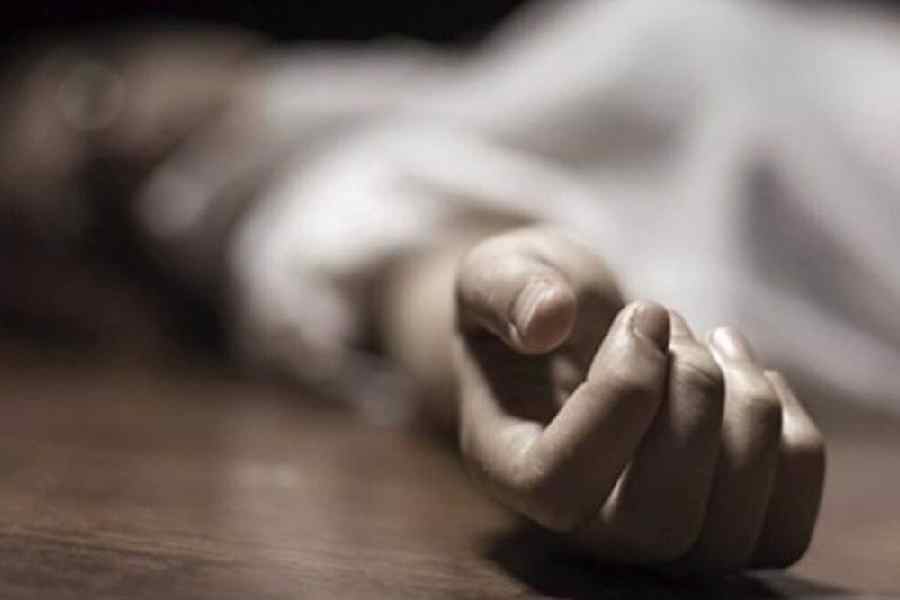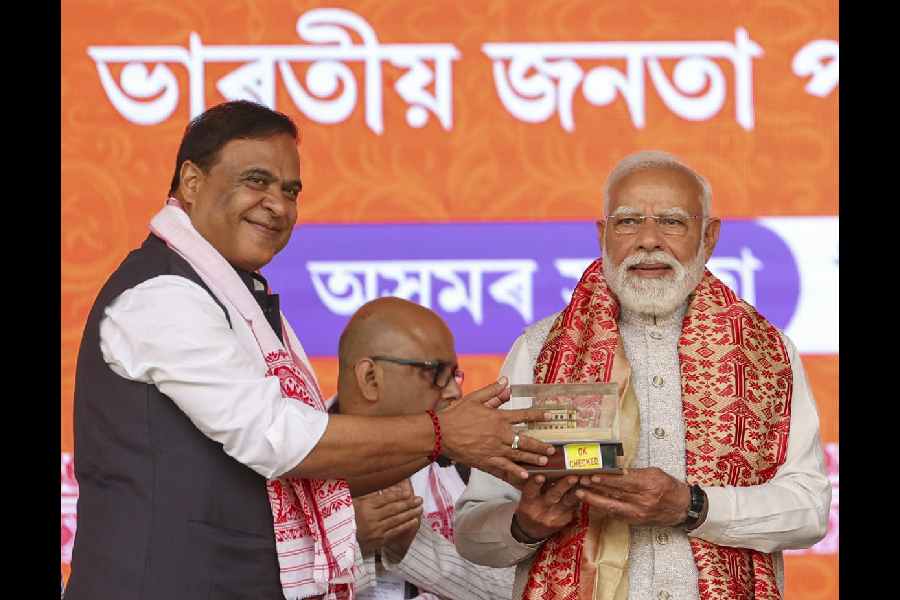

The goddess as a protector of abused women to the need for clean washrooms - women and children from Kidderpore's red-light district shared their personal stories with Damien Syed, the French consul-general in Calcutta, and Elizabeth, the wife of the British deputy high commissioner in Calcutta Scott Furssedonn-Wood, at an interactive session to mark the International Day for the Elimination of Violence against Women (observed on November 25) on Thursday.
The informal adda at Apne Aap's Kidderpore centre saw many sharing their challenges and survival strategies with their "new friend".
They also expressed solidarity with terror-hit France. "Violence is universal and we are here to protest against all kinds of violence. Thus kids who have seen or faced violence decided to present a signed poster to the French embassy to condemn the terror attacks that Paris witnessed recently," said Ruchira Gupta, the founder-president of Apne Aap.
The most telling stories came from two short films made by Apne Aap's Dolly Mahato and Priyanka Kumari Prasad. Both highlighted different aspects of violence and the compromises children of red-light areas face.
Dolly's film Kali was about the goddess and how she turns protector for many abused and trafficked women in her neighbourhood. The simple narration depicting the vulnerable section of Kidderpore tells a vivid tale of violence and sexual abuse. Yet, the film ends on a positive note with the new generation promising to fight against odds.
Priyanka, 17, giggled shyly while her film, Shaadi Ka Shart Shauchalaya, was being screened. The topic was bold, speaking about the subtle abuses and compromises that shanty-dwellers often put up with.
Priyanka's film spoke of the lack of clean washrooms in her area. Women were forced to stand in long queues and wait for hours before they could use the dirty space stained with tobacco and obscene graffiti. Vivid photographs and drawings brought alive their predicament. The film ended with Priyanka praying to god for a suitable groom. The only condition: the man should offer her an exclusive and cleaner washroom. Both the films were the result of a workshop funded by the French embassy.
"It's not easy to come all the way to Apne Aap to study. I have to brave so many cat calls and pass a red-light area that I often feel scared," said Priyanka, a Class VI student.
More poignant stories poured in. Uma Das, 22, broke down as she spoke about the violence she had witnessed and been subjected to. Brought up in the red-light area of Munshiganj, Uma found her voice after she joined Apne Aap. Today, she is a youth leader there, teaching dance to children and helping residents of vulnerable areas take up an alternative trade. "I now know the law and what a safe space is. I am also fighting a case to get back my son from my husband," Uma said.
Mumtaz Begum, 32, shared the story of her journey from a docile wife and a victim of domestic violence to a strong voice in Topsia, fighting for the rights of evicted women and trying to empower them. "Trafficking was very common in Topsia. Only, none of us realised it or knew how to protect ourselves. Now we know and I am not afraid," she said.
Rokeya Begum shared her dream of her daughter studying and getting a "good job" and not going the mother's way.
More dreams found voice as the French consul-general asked the children what profession they would like to take up. Doctor, teacher and cop were the top choices. Speaking in broken Bengali and Hindi, consul-general Syed expressed his gratitude for being a part of the Apne Aap world. "I found the films inspiring, especially Priyanka's. ... Apne Aap is doing a very important job. Women's rights are very important even in France and I hope to help the abused and marginalised in the city," he said.
The adda turned livelier when songs were exchanged and Syed broke into a 300-year-old French melody. The kids gifted him a book of their paintings and a solidarity card. His reaction: " Fatafati!".










